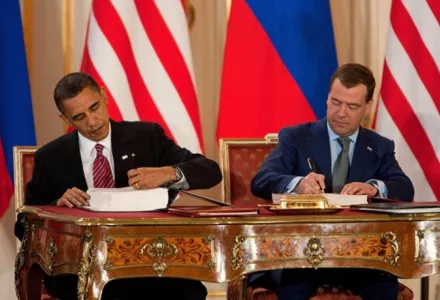Russian violation of the INF Treaty means that it will be politically impossible to replace New START when it expires and even an extension may be difficult. As a result, by 2026 at the latest and perhaps as soon as 2021, there will be—for the first time in half a century—no formal agreement regulating nuclear relations between Russia and the United States. This presentation will discuss the resulting consequences for strategic stability and how they might be mitigated. It will conclude that serious examination, both internally and bilaterally, should begin soon.
Linton F. Brooks is an independent consultant on national security issues, a senior adviser at CSIS, a distinguished research fellow at the National Defense University, and an adviser to four of the U.S. Department of Energy (DOE) national laboratories. He served from July 2002 to January 2007 as administrator of DOE’s National Nuclear Security Administration, where he was responsible for the U.S. nuclear weapons program and for DOE’s international nuclear nonproliferation programs. Ambassador Brooks has five decades of experience in national security, much of it associated with nuclear weapons. His government career has included service as deputy administrator for nuclear nonproliferation at the National Nuclear Security Administration, assistant director of the U.S. Arms Control and Disarmament Agency, chief U.S. negotiator for the Strategic Arms Reduction Treaty, director of defense programs and arms control on the National Security Council staff, and a number of U.S. Navy and Defense Department assignments as a 30-year career naval officer. Ambassador Brooks holds degrees in physics from Duke University and in government and politics from the University of Maryland and is a distinguished graduate of the U.S. Naval War College. He has been associated with the CSIS Project of Nuclear Issues (PONI) since its inception.




